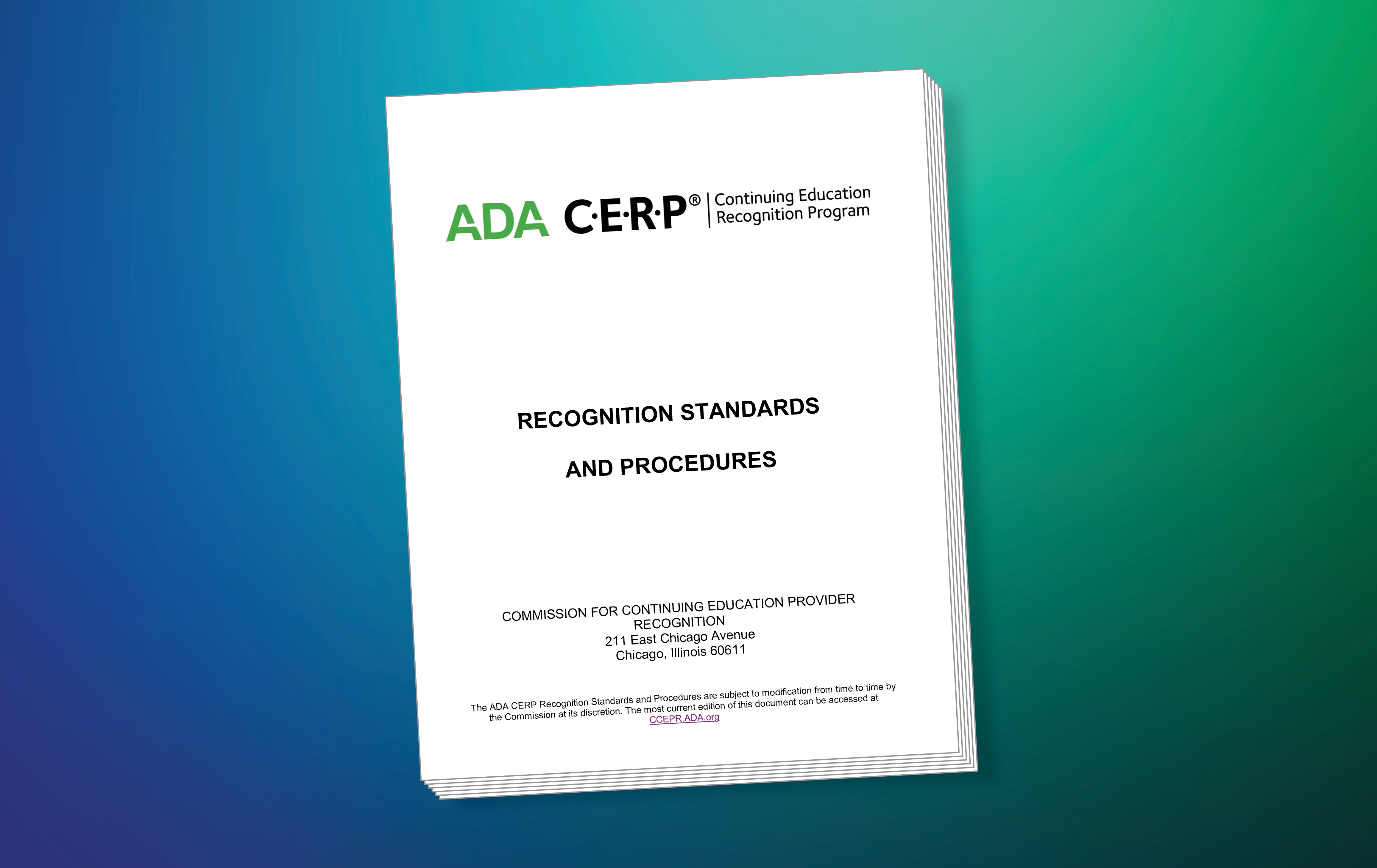ADA CERP recognition is based on a provider’s demonstration of compliance with ADA CERP standards and criteria. Providers wishing to apply for ADA CERP recognition must first complete a pre-application related to the ADA CERP eligibility criteria. If the Commission determines that a provider meets the eligibility criteria, the provider will be invited to apply for recognition. To apply for recognition, the provider must complete the ADA CERP Application for Recognition, a form that relates to each of the ADA CERP standards and criteria. The application, together with any required documentation or pertinent data, is submitted to the Commission for evaluation.
Providers approved by the Commission shall be designated "ADA CERP recognized providers" for the length of their period of recognition which shall be two, three or four years. New applicants (providers that are not currently ADA CERP recognized) may be eligible for an Initial Recognition period of two years. For all other providers, the Commission will determine the appropriate term of recognition based on the level of compliance and complaint history of the provider.
If the Commission determines that more information is required to make a decision regarding recognition status, or that the provider only minimally meets the standards and criteria, the Commission may (1) postpone for a specified period of time, action to determine recognition status pending submission of additional information or a new application, or, (2) grant recognition contingent upon the provider's submission of a progress report within six months to one year. The Commission will identify and transmit to the provider recommendations for improvement or concerns noted during the review.
Recognition of a provider does not imply recognition or approval of that provider's satellite or parent organizations, parent company, subsidiaries, cooperating agencies or divisions.
The ADA CERP Standards and Criteria are subject to review and modification from time to time by the Commission at its discretion. To retain recognition, providers must comply with ADA CERP standards and criteria as modified.
CCEPR does not approve lecturers, individual courses or credit hours. Providers must inform participants on how comments or complaints about an ADA CERP recognized provider may be filed with the Commission.
Continued Recognition of Previously Recognized Providers
The re-recognition process begins about twelve months prior to the designated recognition expiration date. The Commission for Continuing Education Provider Recognition (CCEPR) notifies recognized providers and sends them information about the re-recognition procedures, including a specific schedule. Application deadlines shall be regularized and published, and shall fall approximately two months prior to meetings of the Commission.
Recognized providers must complete and submit an ADA CERP Application for Recognition by the specified deadline prior to the date when the provider's recognition will expire. In addition to the Application form, the provider must submit any other specifically identified materials documenting its continued compliance with the CERP standards and criteria for recognition, as well as improvements in any previously-identified areas of deficiency or weakness. Recommendations for improvements shall be evaluated under the ADA CERP standards and criteria in effect at the time of the evaluation.
